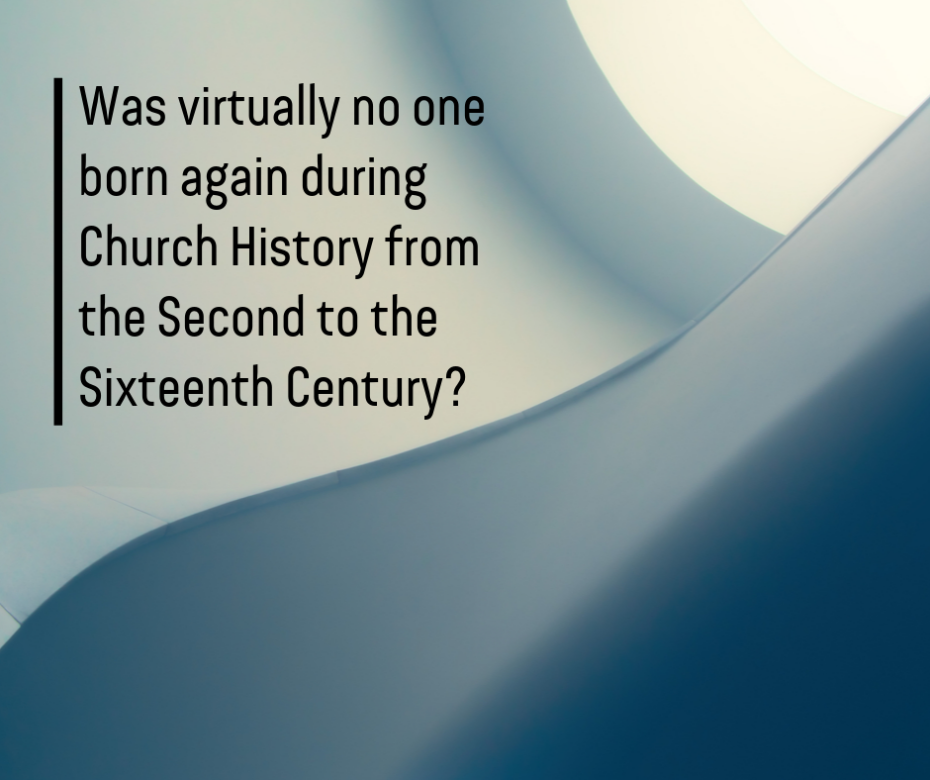I received the following email from a Free Grace friend I haven’t seen in maybe twenty years. My friend asks some tough questions, so hang with me. I hope I can answer his questions clearly.
It’s been a while since we’ve been in touch, but I’d like to interact with you on the concept of “assurance is of the essence.” I was a charter member of GES. I introduced one So Cal pastor to GES thirty years ago. I also served for many years as an elder at another Free Grace church in So Cal. Back in 2006, I had the pleasure of staying the night at the home of René López. We discussed this subject of assurance, and when he described his beliefs, I summarized: “So, what you’re saying is ‘assurance is of the essence of saving faith.’” He pondered it for a moment, then responded, “Yes, that’s it.”
Here’s my concern: I believe there are two types of assurance— objective and subjective, and that only objective assurance is of the essence.
By objective, I mean assurance is included in the promise to believers, for example, John 5:24: “Most assuredly, I say to you, he who hears My word and believes in Him who sent Me has everlasting life, and shall not come into judgment, but has passed from death into life.” Objective assurance does not depend on believers’ understanding of assurance. To illustrate, if I buy a product that comes with a lifetime guarantee (say, a Craftsman tool), it isn’t necessary for me to understand the terms of the guarantee, because whether or not I do, the product is still guaranteed. This (objective) assurance depends only on the manufacturer, not on the customer.
By subjective, I mean assurance should be perceived, such as stated in 1 John 5:13: “These things I have written to you who believe in the name of the Son of God, that you may know that you have eternal life….” Clearly in this passage, belief precedes assurance, and therefore (subjective) assurance cannot be of the essence of faith (or if you insist, of abiding faith).
GES rightly looks first to the Gospel of John to understand saving faith. John states as his purpose: “but these [signs] are written that you may believe that Jesus is the Christ, the Son of God, and that believing you may have life in His name.” He makes it explicitly clear we are to believe that “Jesus is the Christ, the Son of God,” and believing this concerning Jesus, we “have life in His name.” No mention of believing the promise of eternal life—he cares only that we correctly perceive the person of Jesus.
Let’s consider the faith of Abraham, who believed God and so doing was justified, even as are all believers (Romans 4). For most of Abraham’s life, it seems he held to an Old Testament version of Lordship Salvation. Every time God made a promise (Genesis chapters 12, 15, and 17), Abraham followed by relying on his own efforts, twice by pretending Sarah was his wife, and once by taking Hagar to bear him a child. Clearly, he considered his actions (works) as necessary to actualizing the promises; after all, he couldn’t become the father of many nations if he were killed by those who desired Sarah, or if Sarah couldn’t bear children. That’s likely the reason God commanded Abraham to offer Isaac as a sacrifice; it was a test of whether Abraham would leave the fulfillment of God’s promises entirely to God. Subjective assurance was part of Abraham’s faith, but not until Genesis 22 (see Hebrews 11:17-19).
The implications are staggering. For over 1000 years under Roman Catholicism, the Church did not preach assurance (and in fact very much undermined it), but it did correctly present the person of Jesus. If GES is correct, for over half of history since the Apostolic Age, virtually no one was born again. Do we really believe that? Or is Jesus powerful and gracious enough to save those who come to Him as the Messiah, God’s own Son, regardless of how well they understand His promise?
I want first to respond with six brief statements to the six points made, and then with some more detailed comments. Because blogs need to be short, I will only give brief answers to the six points in this blog. I will give detailed discussion of the first two points in part 2. I will further discuss points 3 and 4 in part 3. In part 4, I will discuss in more detail points 5 and 6.
First, I do not think the above description of objective assurance is correct.
Second, I do not think that 1 John 5:13 is saying that the readers believed in Jesus for some time before they had assurance of everlasting life.
Third, I do not think that John 20:31 is saying that someone can correctly perceive who Jesus is and yet not believe that by faith in Him he has everlasting life.
Fourth, I do not think that Abraham believed in a form of Lordship Salvation.
Fifth, I do not think that there was ever a time in Church history where almost no one believed the promise of everlasting life.
Sixth, I do not believe that the Roman Catholic Church was, or is, made up mostly of born-again people.
For more detailed discussion see the forthcoming parts 2, 3, and 4.


